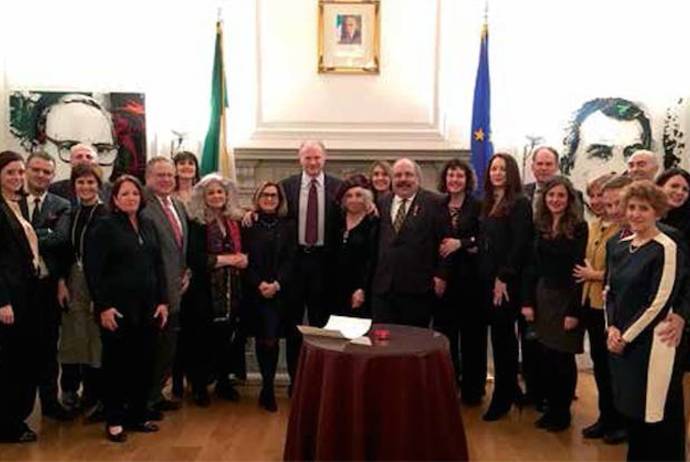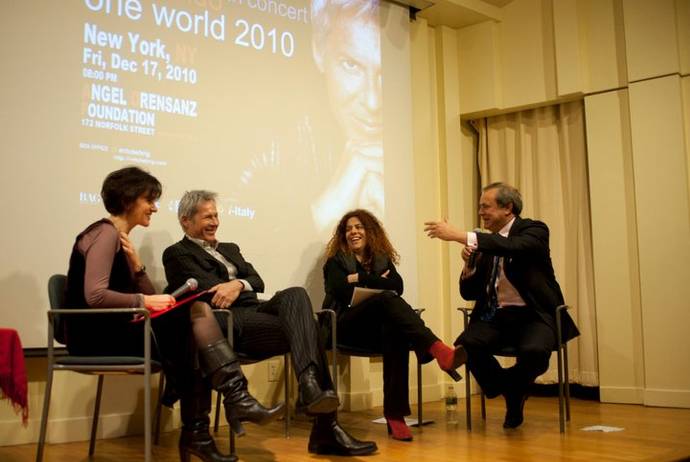Passionate about all things Italian from a very young age, Fred Plotkin is considered one of the major American experts on Italian music, wine and food. After many years of study in Italy, where he learned the language, Plotkin turned his passion into a career, dedicating his life to promoting Italian wine and food culture, opera and cinema.
As a journalist and public speaker, Plotkin constantly champions the great Italian arts in an original and impassioned way. His vast knowledge of Italian society and culture and his great communication skills make him one of the most admired and esteemed experts on our country.
That is what the President of the Republic had to say about Fred Plotkin when recently conferring upon him the title of Cavaliere dell’Ordine della Stella d’Italia. Some time ago, in fact, we were moved to see how much he was moved upon receiving the title.
A few hours after, he posted on Facebook: “It’s an immense honor in that Italy for me has been the greatest teacher and inspiration. How wonderful— how stunning!—that a place I love so would bestow on me this rare honor for my devotion to sharing that which so enthralls me.”
A New Yorker with the Soul of an Italian
There’s no doubt in our mind, Fred is probably the most Italian of Americans in New York. To be frank, few Italians know Italy as well as he does. Want to see for yourself? Ask him about the smallest Italian city and he’ll guide you inside and point out all there is to know about the architecture, art and gastronomy.
The New York Times, which he has contributed to for years, called him, “A New Yorker with the soul of an Italian.” He himself loves to be called a “Pleasure activist.” But don’t jump to any conclusions: for him, “pleasure activism” is “not about hedonism, which can be quite mindless and selfish; it is putting other thoughts out of our head and focusing our senses on what we are perceiving.
It is the recognition of the value of things and experiences. One bite of chocolate or one sip of wine, for example, can be immensely rewarding.”
Adventures in Italian opera at Casa Italiana Zerilli-Marimò:
Thursday, February 18, 2016: Italian baritone Ambrogio Maestri has achieved the rare distinction of total ownership of an iconic role. His interpretation of Verdi’s Falstaff, which he continues to refine, is definitive. He also excels in other core Italian repertoire and appears at the Met this season in Cavalleria Rusticana and the title role Don Pasquale.
Tuesday, March 29, 2016: American tenor Matthew Polenzani has distinguished himself as a leading man in many of the most important romantic roles, mostly in Italian, in the lyric and bel canto repertory. This season he appears at the Met in new productions of Bizet’s Les Pêcheurs de Perles and Donizetti’s Roberto Devereux (in the title role).
Tuesday April 19, 2016: Young Italian soprano Maria Agresta is a rising star, having already appeared in major roles at La Scala and the Paris Opera. She makes her Met debut this season as Mimì in La Bohéme.
These events begin at 6:30 pm sharp. Members have first access to seats to all events, including these. For information: >>>































